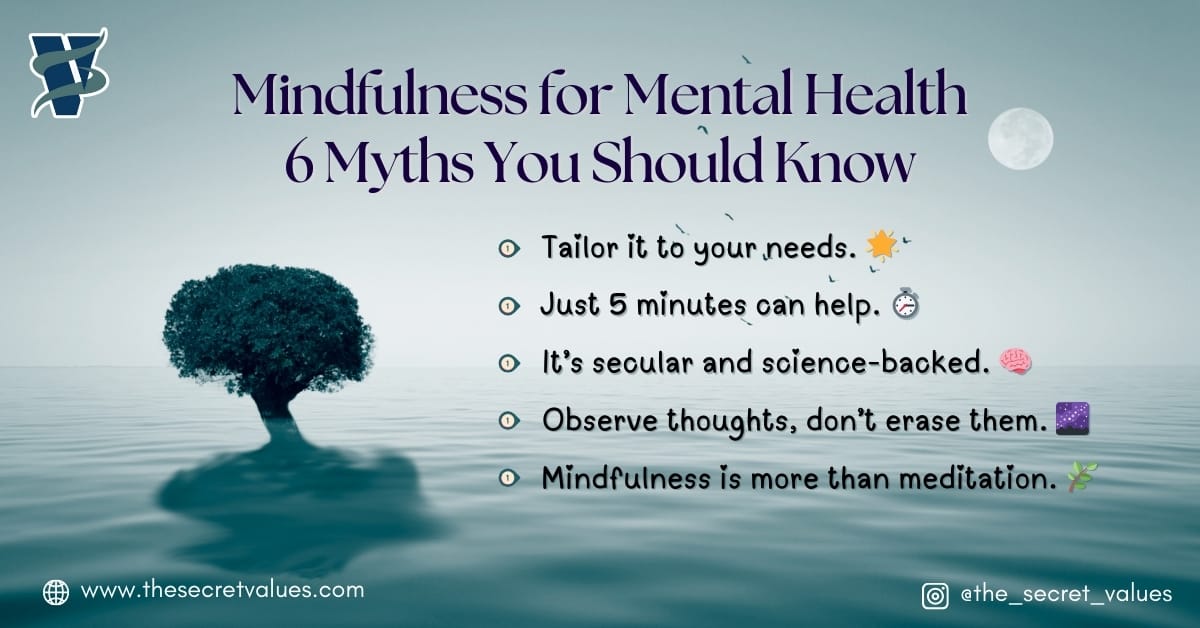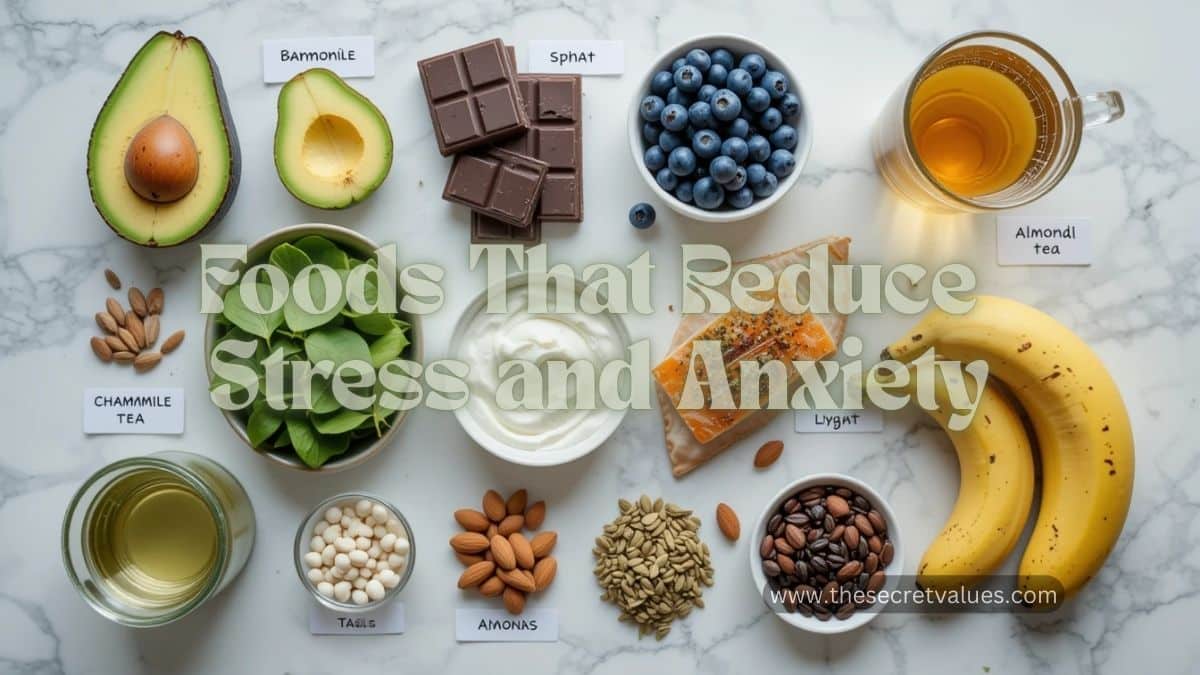One such effective tool for enhancing mental well-being is mindfulness; however, it is surrounded by numerous misconceptions. It is sometimes even confused with meditation or restricted to spiritual gurus, a fact that may deter people from using it and gaining knowledge. Mental health mindfulness is a simple practice that anyone can incorporate into their daily life. To reveal the truth, we can debunk the six most common myths about mindfulness.
Myth 1: Mindfulness is all about meditation.
Mindfulness is widely practiced, often with sitting in a cross-legged position during meditation. However, it is much more than that. Although meditation is one of the elements of mindfulness, the practice does not end there.
More than Meditation at Home:
Mindful eating, walking, and breathing mindfulness practices can be conveniently incorporated into daily life through activities such as eating, walking, or even breathing. It is possible to use mindful eating as an example because, instead of people feeding their phones as they eat, they can focus on tasting and experiencing the food.
Myth 2: Mindfulness is a Religious Myth.
Traditions vs. Present-Day Mindfulness.
Although there exist Buddhist origins of mindfulness, contemporary mindfulness is strictly secular. Classes such as MBSR (Mindfulness-Based Stress Reduction) are based on mindfulness as a scientifically proven resource for mental health.
In everyday life, secular mindfulness practices are not tied to a specific religion. To practice mindfulness, it is not necessary to belong to a particular faith. Mindfulness applies to anyone who wants to manage stress and achieve better focus and emotional stability.
Myth 3: Hours of Practice
Mindfulness Needs Reality beyond Deceptive Understandings of Brief and Efficient Mindfulness Practices.
The misconception that most people hold is that mindfulness can be practiced in a few hours. Even a few minutes can make a significant difference.
Exercises by busy people (5 minutes)
Begin by doing easy-to-learn drills such as deep breathing or mindful time of sensing (in 5 minutes). Amazingly, even a quite short mindful period in the middle of a day can relax your mind and make you feel more attentive.
Myth 4: Mindfulness is a Matter of Quelling of Your Thoughts
Seeing thoughts as opposed to setting them free
Mindfulness does not involve an empty mind. It is not about judging your thoughts, but rather about being observant of them.
The strength of consciousness and being content gives room to react instead of respond.
That is life-changing in the process of managing stress.
Myth #5: Not Everyone Benefits from Mindfulness.
Why tailoring mindfulness is possible: mindfulness is not a one-size-fits-all solution.
You can practice various methods, such as breathwork, body scan, or mindful walking, to discover what suits you best.
Real-life success stories, being transformative, have changed the attitudes of many who were skeptics.
Oprah Winfrey is one such person; she is a public figure who has elaborated on the transformation effected by it in her life.
Myth 6: Mindfulness is the same as meditation.
Some main distinctions between mindfulness and meditation are as follows:
The process of meditation is rather organized, but mindfulness is the ability to be present throughout the day. A direct sort of mindfulness is not dependent upon formal meditation.
How mindfulness supplements meditation.
Although they differ, mindfulness complements meditation by aiding in the acquisition of goodness and its sharing in life.
The Positives of Mindfulness Mental Health:
Less anxiety, less stress.
Mindfulness decreases cortisol levels, thereby curbing stress and anxiety.
Enhancement of emotional control and attention to mindfulness regularly enables one to maintain a good emotional balance and remain undisturbed in the face of challenges and circumstances.
The most effective means of transforming mindfulness into practical living involves daily morning practices, such as mindfulness breathing activities or gratitude journaling.
Attentive pauses at the workplace involve taking regular breaks, breathing deeply, stretching, and refocusing.
EW and Mindfulness:
Relating mindfulness to emotional consciousness, mindfulness helps you accept emotions, allowing you to learn how to deal with them.
Coping strategies for difficult emotions include learning to create distance and awareness by trying techniques such as body scans or labeling emotions.
The Science Behind Mindfulness and Mental Health:
Research on the effect of mindfulness on the brain indicates that it increases the thickness of grey matter in parts of the brain that regulate emotions and concentration.
Research on mental health in favor of mindfulness
Harvard and other studies show that it is effective in the treatment of symptoms of anxiety, depression, and PTSD.
Conclusion:
Mental health mindfulness is not about perfection; it’s about being present and conscious.
It is only after busting those myths that you can explore mindfulness without being misled by them. Begin with small steps and remain persistent; the results will surely follow.
FAQs
In what way is meditation different than mindfulness?
Meditation is a form of mindfulness, which can be practiced anywhere and at any time of day.
Is mindfulness applicable to anxiety levels and depression?
Indeed, research indicates that mindfulness has the effect of lowering anxiety and depression levels by settling the mind.
What is the time it takes to see the effectiveness of mindfulness?
Even a practice as short as 5 minutes can demonstrate results over time, provided it is conducted regularly.
Does mindfulness fit in every individual?
Absolutely. Mindfulness is specific, and it can be addressed to specific needs and preferences.
Does mindfulness require any form of meditation?
And the answer is yes; mindfulness encompasses daily tasks such as mindful eating, walking, or breathing.







